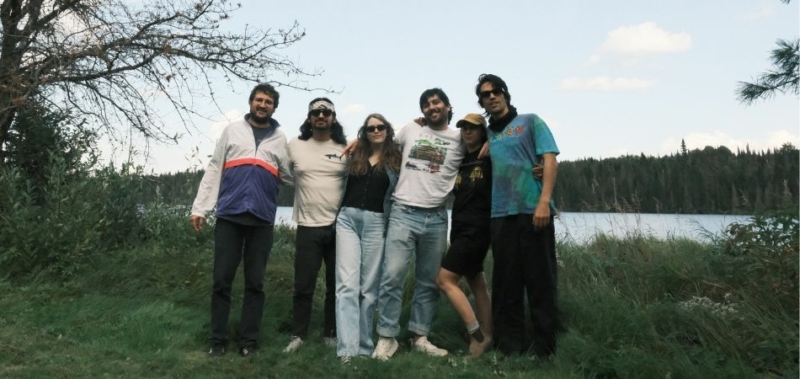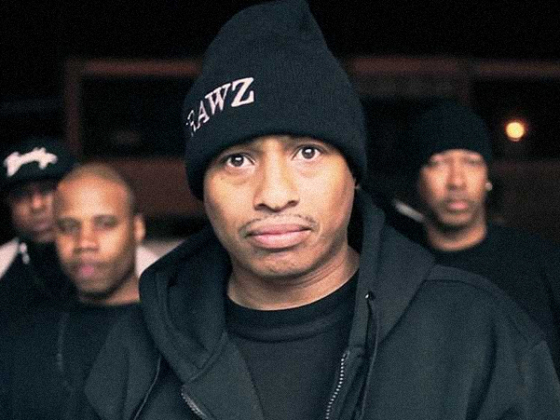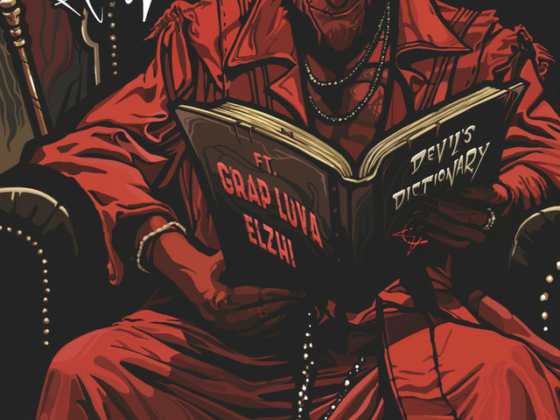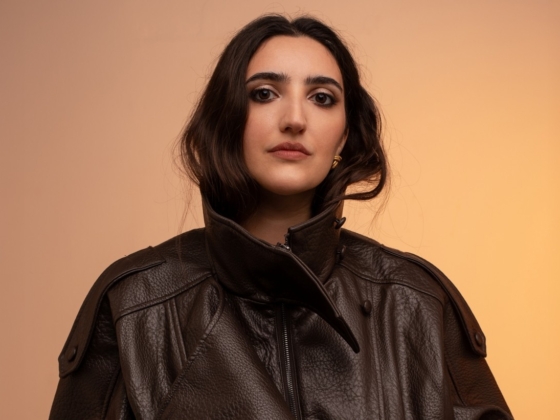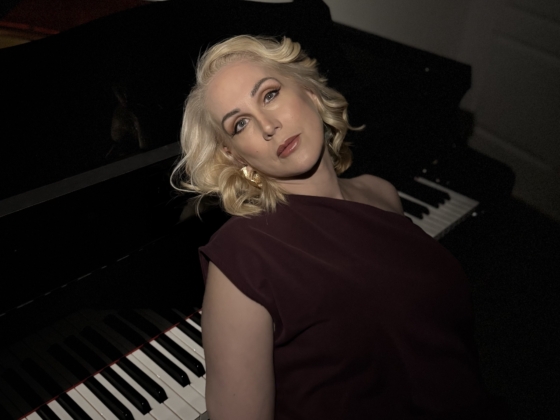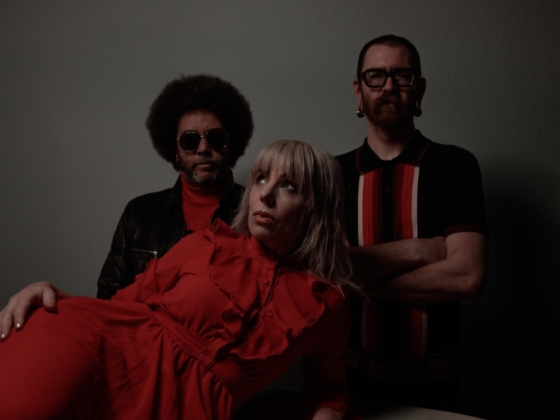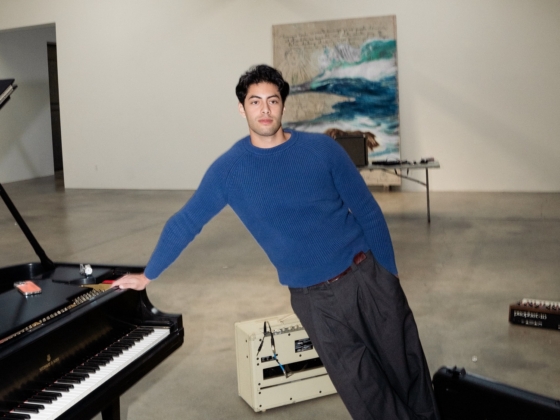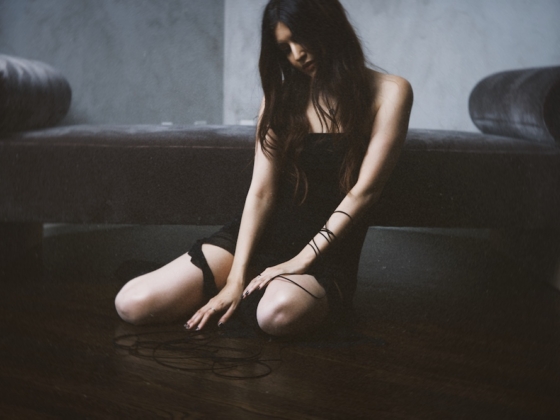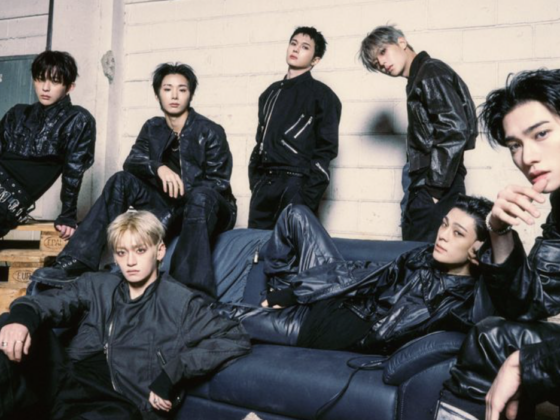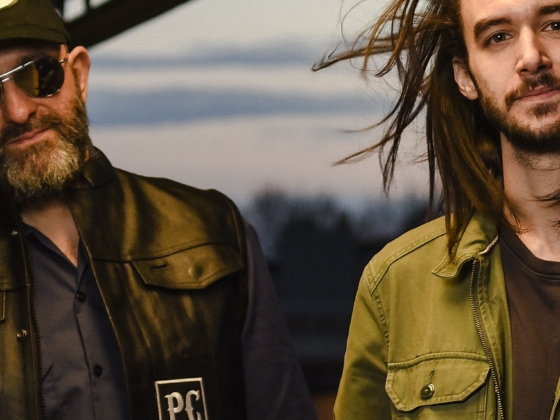Where does inspiration come from? It's a question artists have grappled with for as long as art has existed. Is it something spiritual? Biological? Or does it simply just exist?
Mexico City’s Petite Amie, an emerging band blending psychedelic pop with indie influences, describes music as a deeply spiritual experience — one that often defies explanation.
Composed of singer and keyboardist Aline Terrein, singer Isabel Dosal, bassist Santiago Fernández, guitarist Jacobo Velazquez, and drummer Santiago Mijares, the band has the kind of synergy that typical bands with over ten years of experience usually have — an impressive feat for a group that came together only a few years ago.
Since forming in 2019, Petite Amie has been steadily making waves in the indie scene. The band has garnered critical acclaim for their self-titled debut album, which was featured in Rolling Stone Mexico’s "Best Albums of 2021." They've also gained international recognition by performing at Boise's Treefort Festival, Seattle's Freakout Festival, and KEXP. Recently, they signed with both Canadian and U.S. booking agencies, further expanding their reach beyond Mexico.
In a conversation with Aline and Isabel, they opened up about their creative chemistry, plans for their upcoming project, and their open-minded approach to how listeners interpret their sound.
How did you come up with the name Petite Amie, and what does it reveal about your music?
Aline: We often say that Carlos is the one who really put the band together. He’s one of our bandmates—the brains behind the operation. He’s essentially the mastermind.
Isabel: He handpicked each of us to make music together. He used to play in a band with our bass player back in high school and college, worked with our guitar player in a music studio, and plays with our drummer in another band. Carlos met Aline at a concert and met me at a music studio.
He brought us all together, and we like to joke about how Aline is quite a bit shorter than Carlos, who is over 6 feet tall, while Aline is, well, smaller—so we playfully call her "petite amie" and the band is also like our baby, our Petite Amie.
Our first album and new music aim to be easy listening—perfect for having on in the background during a meal. But the album also offers a reflective side, hopefully helping listeners connect with their own experiences.
What inspires you as a group, and what themes do you explore in your lyrics?
Aline: It’s quite interesting because we began right before the pandemic hit. During the quarantine, while we couldn’t see our families, we met up to write music. We each brought a lot of emotions to the table, mainly around the anxiety and sense of being trapped during that time. It’s amazing that, despite everything, we were six friends choosing to come together and make music, each contributing a wealth of emotions and creativity.
Typically, Carlos starts with a “maqueta”—a demo with some chords and a basic vibe. We then bring our ideas together, and when we find something that resonates, we start brainstorming. It’s a unique and challenging experience to create music with six friends, each adding their own touch to the process.
Isabel: What we like to do is build on each other's ideas. Sometimes someone will have a clear melody in their head and start humming it, while another person might come up with a phrase or some words. We then build on those elements, and it often feels like a stream-of-consciousness process. We don’t always have a specific theme in mind; instead, the themes emerge organically as we work together. It’s kind of like a download, that’s how I think about it.
Maybe this isn’t the perfect analogy, but it’s a bit like opening a new puzzle and laying out all the pieces, trying to make sense of them. Each person contributes something unique, and watching it all come together into a song, an album, or even a tour is truly beautiful.
Aline: It’s challenging but fun. We create a demo, build it up, record it, and then listen to it. Often, we find that we need to go back and make changes—adjusting verses, adding or removing elements like drums. It’s a very open process where we all learn to accept criticism and leave our egos at the door. The focus is on doing what’s best for the song, even if it means changing or letting go of ideas we initially liked.
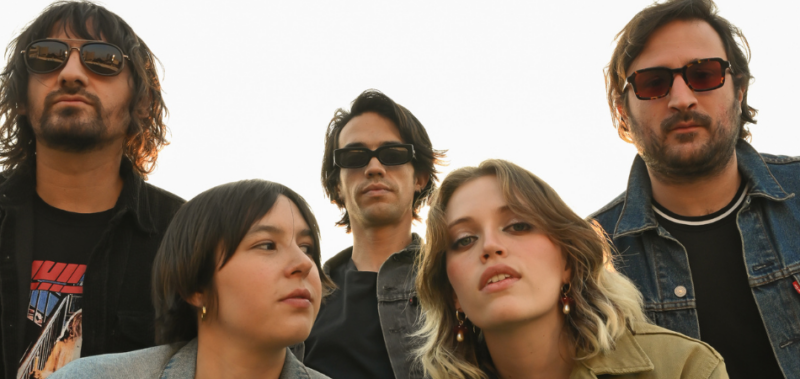
What led your band to sing in both French and Spanish in your music?
Isa: Aline and I are both French and Mexican, so that’s at the core of our music.
Since we both speak French, it felt more natural to brainstorm and compose in French during the studio sessions. The others didn’t understand what we were saying, which made it easier to be less self-conscious—like when I once started singing about my dog and no one even noticed! We found that we really liked the sound of French and decided to embrace it, exploring both languages in our music.
It’s a bit like choosing between watercolors and oil paints. Both are beautiful in their own way. While I grew up in a Spanish-speaking home and am more familiar with that, I appreciate the unique qualities of both languages.
Can you share a memorable or fun moment from recording your latest album?
Aline: We had a unique experience because we started recording our new album before finishing the first one. We had most of the demos and songs for the first album complete, and we were eager to keep the momentum going. Carlos always says we can never stop; the machine has to keep turning.
By the time we began writing new music, we had already learned how to work together as a band. One of the last songs on the album, called "Tout Détruire" (which means "to destroy everything"), is something you’ll hear when the new album comes out.
And I think that was a very special time for us to compose because, for some reason, we were all so in sync. We put together a song in just three hours. It felt wonderful, and we had such a great time making it. It was like we were all operating from the same brain.
We were totally in the zone, which doesn’t always happen. We were all ready to receive and process the same information, and that kind of harmony is special. It was a fantastic experience.
Isabel: We’ve already started releasing some singles, and we have a new one coming out on September 20th. The new album is supposed to drop sometime in late November.
That’s exciting! With your mix of psychedelic pop, indie, and experimental sounds, is there a new direction or element you're excited to explore in future projects?
Isabel: For this album, we really focused on peeling back layers and aiming for a raw, unfiltered sound. With the lyrics, we wanted to be as direct as possible, avoiding too many metaphors and layers of meaning. At the same time, we aimed to maintain a dreamy, slightly psychedelic quality while keeping things minimalistic, so each element could stand out.
It’s interesting because we’re still discovering our sound. This album took so long to complete that the earliest and latest songs we recorded are quite different from each other. We don’t have a set direction; we just follow what resonates with us emotionally in the moment.
Carlos handles the technical side of production, acting as the production brain behind the scenes.
Are you both the primary lyricists for the band?
Aline: Yeah, it’s mostly Isa and me. Sometimes the rest of the band comes up with great ideas, so it’s open for everyone to contribute. But yes, primarily Isa and me.
Santiago, the bass player, is also very involved in the production. We think of him as the tailor of our band—he’s our editor. For example, we create something, and then Santiago might say, “This tastes weird; it needs a bit more salt.”
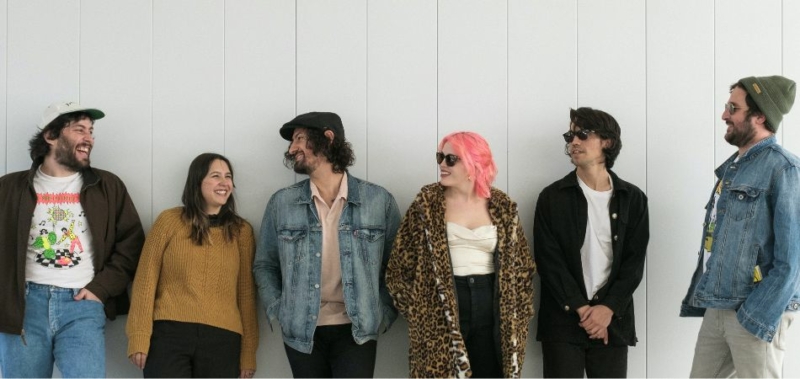
What’s next — new music, shows, collaborations, or any exciting new ideas?
Aline: We realized that video clips were a separate creative avenue where we weren’t always in sync. So this time, instead of traditional videos, we recorded live sessions for five singles from our upcoming album. We’ve been releasing these as live clips.
Isabel: We recorded the sessions at a unique location in Mexico City called the Poliforum Siqueiros. It features one of the largest murals in the world by the artist Siqueiros, and the space is an impressive round room covered in his artwork.
The entire space is covered in art. The specific mural, which aligns with the theme of our new album, is called La Marcha de la Humanidad, or the March of Humanity. It features intense, incandescent reds and yellows that reflect the human struggle—a raw, emotional parallel to our music.
Aline: As Isa mentioned, we aimed to strip things down and be more raw, and the live sessions really complement that. Additionally, we’ve just signed with a Canadian booking agency and have representation in the US as well, so we’re excited about expanding our reach and playing abroad. We really enjoy coming up north.
What message do you hope listeners take away from your music?
Isabel: We love it when people listen to our music without overthinking it—just make it your own. Absorb it, let yourself get carried away by it. If you can do that, we feel like we’ve achieved our goal.

